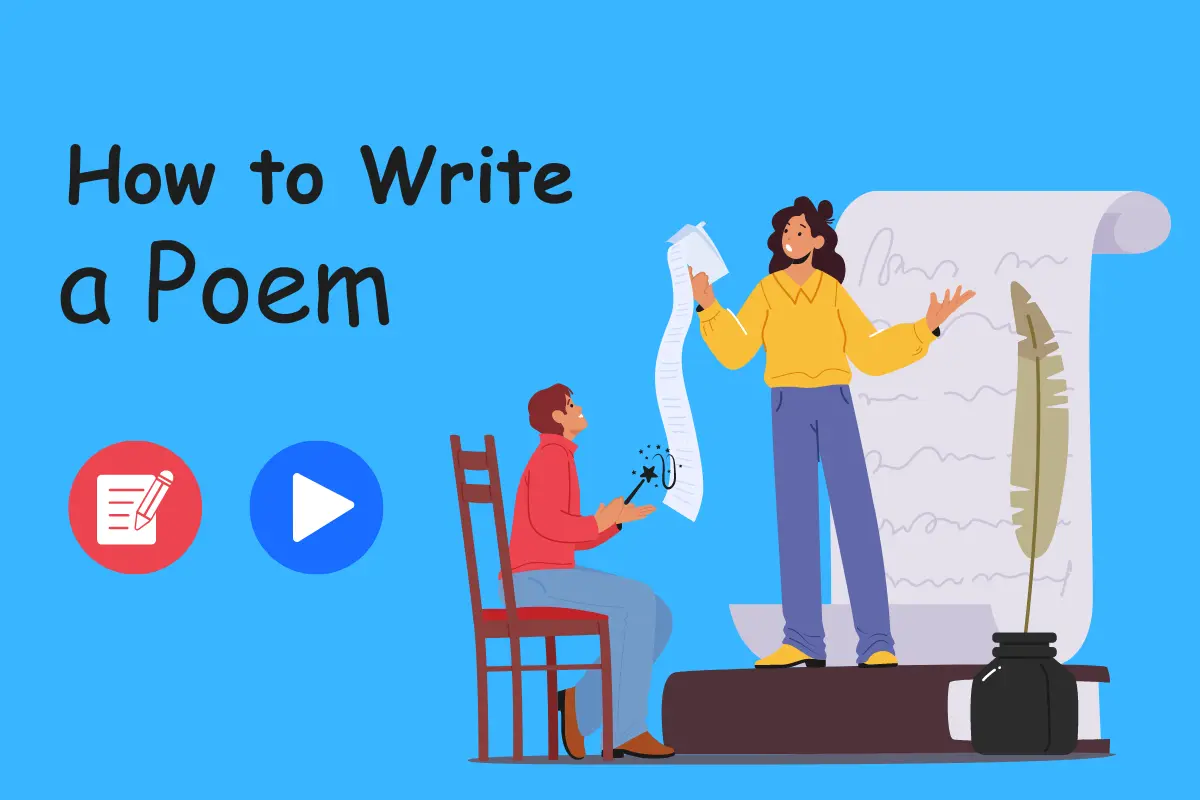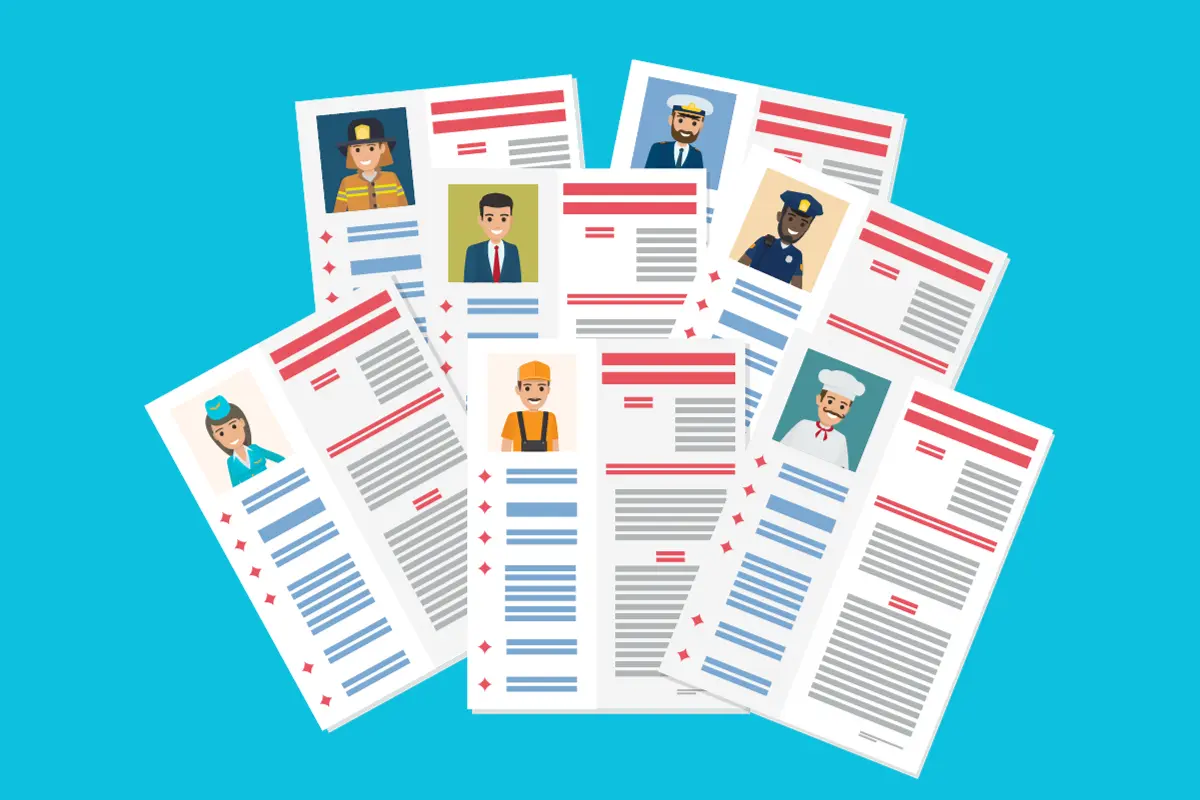How to Write a Poem: Poetry Writing Guide for Beginners
Unlock your creative potential with our step-by-step poetry writing guide for beginners. Learn how to write a poem and express yourself through words.

Zannat Mou
Last updated on Feb 17th, 2024

When you click on affiliate links on QuillMuse.com and make a purchase, you won’t pay a penny more, but we’ll get a small commission—this helps us keep up with publishing valuable content on QuillMuse. Read More.
Table of Contents
Do you think about how to write a poem? Some writers think that it is possible to write a poem without literature students. I think, of course, it is possible to write a poem without literature students. You just need proper guidelines.
Some content writers asked me how to write a poem. In case you do not consider yourself a writer, writing poetry challenges your phrasing, capacity to be concise, use of symbolism, rhythm, and narrating abilities.
On the off chance that the thought of writing poetry appears a little intimidating, you’re not alone. Poetry has exploded in the final few years, particularly since social media artists began to win over new poetry fans by filling timelines with relatable pieces of poetry. Within the ever-evolving world of poetry, it can be challenging to figure out where to start. Do not stress; the small interminable has you secured with something for everybody.
How to Write a Poem: Poetry Writing Guide for Beginners

Follow these comprehensive steps on how to write a poem and become an expert poetry writer.
1. Study poetry
When you are curious about how to write a poem, be conscious that you must read so many poems that will make you write a poem easily.
Whereas this sounds self-evident, you’d be astounded to memorize that few writers Read a part of poetry. If you want to become a famous poet, you need to read about the writers who have come before you.
Reading poetry can also help you identify which styles of poetry you’re fascinated by. Additionally, it’s an awesome way to get motivated when a writer’s piece unavoidably creeps out of its head.
Read more: How to Write Your Life Story
2. Do not overcomplicate it
We get that this may be simpler said at that point done; however, beginning little may be an awesome way to begin doing anything modern.
For example, do not attempt to begin writing poetry by writing a 1,000-line epic lyric. Instead, begin with something shorter, like a 3-line poem.
Starting small will help you grow your abilities and inevitably help you develop your confidence to undertake harder shapes of verse.
3. Attend poetry groups
When learning how to write a poem, creative spaces offer assistance to develop and sharpen your wonderful fashion. We highly suggest you get included in your nearby inventive scene.
This implies going to poetry readings, joining nearby writers or readers gatherings, and perhaps indeed sharing and altering your work in a workshop.
In case you’re incapable of dealing with neighborhood poets, there are various spaces online to do so.
From prompts to assets and support, you’ll discover individual poets online who can offer assistance and keep you centered and driven in your interest in being a poet.
This practice benefits poets in two ways. To begin with, it energizes you to type in due to the responsibility figure. Second, it makes writing a more community-driven poem possible, like being in a room and slamming your head in the work area since you’re not feeling propelled.
4. Use poetry journals and prompts
This is another way to write a poem. There are few better ways to break through a writer’s square than by reveling in special poetry prompts. If you’re longing to form past poetry, take a guided writing journal.
By the way, these sorts of journals change broadly. A few journals plan for you how to write a poem every day; some journals and prompts provide to-do calendars, whereas others are there for you once you require them. Either way, writing prompts are a reliable way to induce you to think outside the box.
5. Discover your writing style
You have learned the essentials of how to write a poem. You’ve written a few poems you’re fixated on, and a few, well, you arrange on re-visiting. You experimented with different forms and styles.
Now, you’ll begin to characterize your poetic style. Right now, micropoetry is trending. This style is known to be short, basic, and to the point. Are you having a difficult time being limited and to the point?
Attempt to use metaphorical language, representation, and symbolism in your poem. Do your poems not fit in one style? There isn’t a strict policy on poetry writing. Use it as a way to precise yourself inventively and make it your possession.
6. Edit your poem
Editing is the most momentous thing about how to write a poem. Regardless of the poem you write, the more times you edit it, the more likely it is to be unprecedented, which will increase your enthusiasm for writing poetry. While you edit your poem, you can talk with experienced poets.
7. Choosing the topic
Knowing how to write a poem, try to choose a topic in which you are really interested.
Whether you’re assigned to write about any topic or you are choosing your own topic, it is vital that you simply choose your title. Anything can ignite your thoughts, so look around for motivation in case you do not know beyond any doubt what to write about.
Reading distinctive poems can, moreover, be an awesome offer of assistance. Topics can be current events, people in your life, nature, battles of individuals in society, etc. Make a note of all the things that you just took note of that drove you to select this point.
The exceptional way to begin is to begin with freewriting. You’ll be able to note down the focuses, and after that, let them coalesce in your intellect into a common shape and structure that suits a poem.
Read more: How to Write a Novel For Beginners
8. Capture your emotion
To analyze how to write a poem, you must write the poem through your emotions and inner feelings. Choose topics that are connected to your emotions. It will be beneficial for your poem writing. You can smoothly complete your poem.
Example of an emotional poem:
Within the shadows of my heart, echoes weep.
An ensemble of misery and deeply rooted feelings
Whispers of delight, transitory and subtle,
Moments of pain are a soul's yield.
9. Choose words carefully
When you write poetry, you must be careful with your word choice. Because if you can’t choose the right words, then the audience will not be interested in reading your poem. So choose the words for the poem in such a way that they touch the heart of the audience.
10. Specific techniques
Though writers want to know how to write a poem, they can apply various techniques, such as freewriting, exploring new surroundings, or drawing inspiration from diverse sources, that can help break through creative barriers when writing poetry.
[Video] How to Write Poetry for Beginners
Conclusion
In conclusion, making a compelling poem requires a delicate balance of feeling, symbolism, and etymological creativity. By imbuing veritable feelings, making distinctive symbolism, playing with sound, choosing words mindfully, testing with structure, and grasping the modification process, you’ll open the poetic potential within you. Each poem may be an interesting expression, and through these tips, you’ll set out on a journey of self-discovery and imaginative exploration within the domain of poetry.
FAQs on How To Write a Poem
What is the exact format for writing a poem?
There is no specific format for writing a poem. Because it’s like free writing on your own.
How emotion is crucial to writing a compelling poem?
Writing your poem with veritable emotions can essentially improve its impact, making it a more important and relatable experience for readers.
How can I edit my poem to enhance its overall quality?
Editing is a crucial part of the writing process. Take time to edit your poem, focusing on clarity, rhythm, and coherence. Seeking feedback from others can provide valuable insights for improvement.
Can anyone learn to write poetry, or is it a skill naturally?
Writing poetry is a skill that can be gained with practice and a genuine passion for self-expression. While some may have natural sources, anyone can learn and improve their poetic abilities over time.
How we've reviewed this article
Our content is thoroughly researched and fact-checked using reputable sources. While we aim for precision, we encourage independent verification for complete confidence.
We keep our articles up-to-date regularly to ensure accuracy and relevance as new information becomes available.
- Current Version
- Feb 17th, 2024
- Feb 9th, 2024



